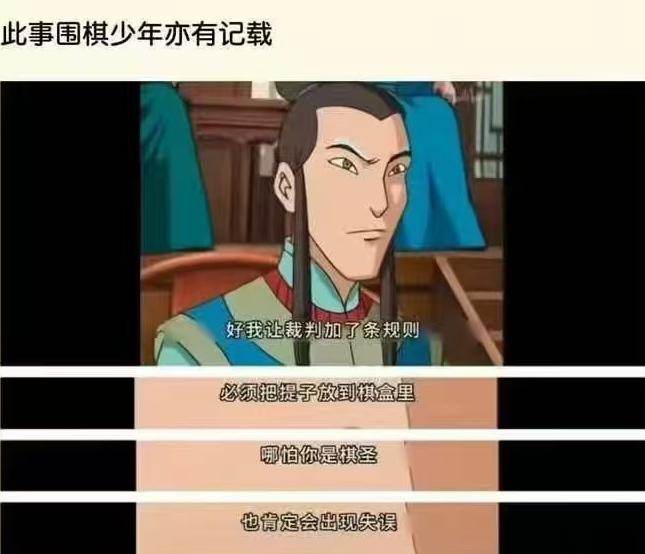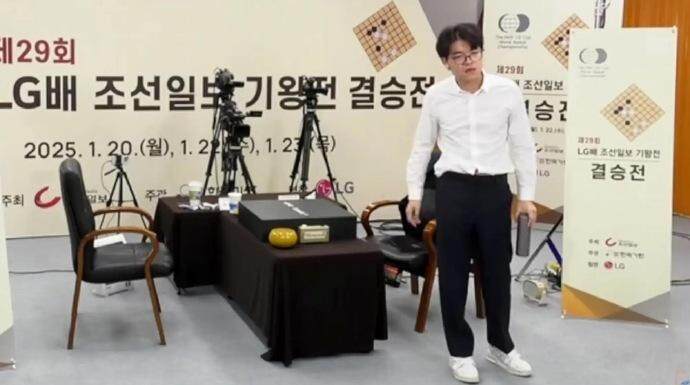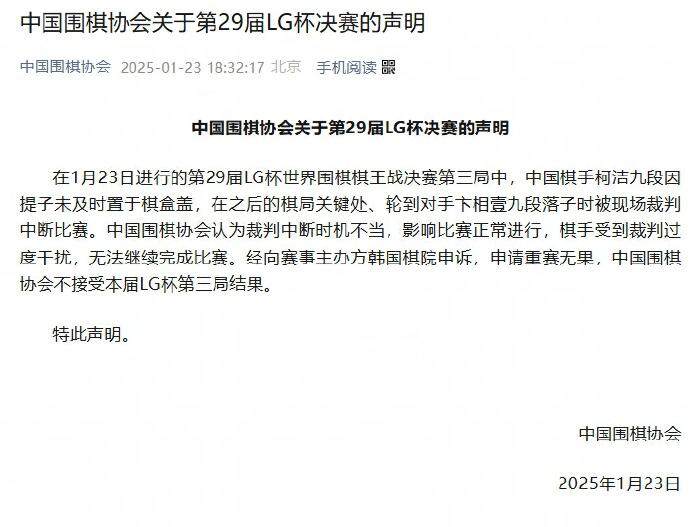Important news
Detailed explanation of Ke Jie's withdrawal from the LG Cup final: How did the most controversial Go
The final of the 29th LG Cup World Chess Championship finally became a farce rarely seen in the history of Go. The final game on January 23 will go down in history as the most controversial game in the history of international Go competitions. And the record it set was set far back... the second game one day earlier.
This is the first time in the history of the world championship that two consecutive games were not completed but the champion and runner-up were decided. It is also the first time since the establishment of the World Go Championship in 1988 that the outcome was decided by the referee.
How did such a bizarre final come about?
Unreasonable “retrospection”
Let's replay first: In the second and final sets, Ke Jie was penalized for not putting the grapes into the cover of the chess box. In the second set, he was twice penalized for fouls and lost the game directly; in the second set, he had a similar situation. After questioning the referee's intervention and the inappropriate time of suspending the game, and asking for a rematch to no avail, he chose to withdraw.

Bian Xiangyi "reported" Ke Jie's foul in the second set
The source of the controversy, of course, is the new Korean rule on the standard of chess pieces. Because of the game habits of Korean chess players, they need to observe the opponent's chess pieces when counting points in the game to help judge the current situation. When calculating the victory or defeat at the end of the game, the "dead pieces" on the chess box cover will be put back on the chessboard to facilitate calculations. As a major competition held in Korea, it seems to be customary for foreign players to "follow the local customs".
However, there is a problem with the implementation of the rule: this rule was only implemented in November last year, and the current LG Cup started earlier in May last year. Therefore, according to the convention of sports events, the scope of application of the rule should not be retroactive to events that started before the implementation of the rule. This LG Cup final is part of the 29th LG Cup and should not be an exception.
The rules are unreasonably "traced back" to competitions held before they appeared, and such unreasonable "tracing back" also appears in more specific chess board situations.
In the second game, Ke Jie committed a "foul" in the 18th move, but the referee did not investigate until the 44th move. This is misleading for the players' tactical strategies. Because the 2 points penalty for the foul will directly affect the players' judgment of the game situation. To take an extreme example, the player chose to play conservatively until the end of the game according to his prediction that he would win 1 point, and was not told by the referee that he would be penalized 2 points until the last move. Is this reasonable?
The third set saw a similar but more extreme situation. The referee also "delayed" his intervention in the suspected foul, and coincidentally, he only traced back to Ke Jie's previous foul when Bian Xiangyi was facing a severe calculation test. The referee himself was suspected of violating the rules of suspending the game. He suspended the game while Bian Xiangyi was thinking, which was equivalent to giving the latter a lot of extra time. The correct approach should be: let Bian Xiangyi hand over the move to the referee in a confidential manner after the move is completed, so as to avoid unfair time between the two sides.
At that time, although Ke Jie was obviously behind, he had already created a very chaotic situation in the upper right corner, surrounded Bian Xiangyi's big dragon, and had much more time left. Once Bian Xiangyi entered the countdown early, the situation could be reversed if he was not careful. What's more, Ke Jie is a frequent comebackist, while Bian Xiangyi is famous for his unstable mental state.
The time advantage was originally Ke Jie's biggest bargaining chip for a comeback, but it was taken away by the referee in disguised form.

In the anime "Go Boys", similar rules were foreseen to determine the outcome of the game.
A farce with no winners
In addition to the "selective enforcement" in terms of timing, there is also "selective enforcement" in terms of objects. For example, in the 52nd move of the final game, Bian Xiangyi pressed the clock first and then placed the piece on the chess cover. This was an obvious foul, but the referee did not make any comment.
The unification of Go rules in various countries is of course a long-standing issue. Currently, the rules of China, Japan, South Korea and Yingshi coexist, and each believes that its own rules are orthodox, which has always caused various hidden dangers in the adaptation of Go game rules. However, specifically for this final, the biggest problem is not the rules themselves, but the way the game enforcers use the rules. In addition to "selective enforcement", this rule itself is also "made on the spur of the moment", which makes the external players more uncomfortable due to muscle memory, and they are prone to making mistakes even if they pay special attention. Even if they do not make mistakes, they will be distracted by the rules and affect their judgment of the game itself.

Ke Jie was dissatisfied with the timing of the referee's intervention to suspend the game
Go etiquette is certainly part of the charm of this sport, but the rules should serve the quality and fairness of the game. The Korean organizers might as well ask themselves: "Does the rule that grapes must be placed in the lid of the chess box have a greater impact on the quality of the game? Is the difficulty of adaptation the same for local players and foreign players? Is this far from the difference in the difficulty of adaptation for these two types of players under other rules? Is the "differentiation" of the rules really not used as a tool to create a "home advantage" in disguise?
This is a farce with no winners. Ke Jie missed the chance to break his championship drought and his ninth championship in an extremely aggrieved way; the champion Bian Xiangyi was given the embarrassing title of "the first chess player in history to win a three-game match with zero wins (actually 'loss wins')". He reminded the referee in the second game that Ke Jie had committed a second foul. Although it was within the rules and was understandable, he lost some grace in the dimension of sportsmanship. His guilty look when he "reported" will be repeatedly broadcast and complained on social networks. And because of the improper behavior of the referee, the LG Cup, as a world championship in South Korea with a long history, also suffered from reputation damage.
The Chinese Go Association issued a statement saying that the referee interrupted the game at an inappropriate time, affecting the normal progress of the game. The players were excessively disturbed by the referee and could not continue to complete the game. After appealing to the organizer of the event, the Korean Go Association, and applying for a rematch, it was unsuccessful. The Chinese Go Association said that it does not accept the result of the game.

Chinese Go Association statement image/Chinese Go Association
This is the attitude that a country's chess association should have.
The rules should be as fair and reasonable as possible. If the rules cannot be fair, then at least they should be fair.
Differences in rules are acceptable, but "different treatment" of the same rule is unacceptable.
What made this final go down in history was not the wonderful chess game, but the literal "out-of-the-box moves".
This is the sadness of Go.
-
上一篇

Why do Korean Go rules require that "dead pieces" be placed on the lid of the chess box?
On the 22nd, a dramatic scene occurred in the second round o...
-
下一篇

Evergreen, which once deliberately damaged the national flag and sent US tanks to Taiwan, made tens
To a certain extent, what we hate more than the "Taiwan...




